
In the field of medicine, steroids have long been used to treat inflammation. However, despite their efficacy, they come with a range of side effects that can pose significant risks to patients. In this particular case report, we present a successful alternative approach to treating inflammation without the use of steroids. We employed high-dose alpha lipoic acid as a treatment for reducing systemic inflammation, and the results were truly remarkable.
Steroids are commonly prescribed for various inflammatory conditions due to their potent anti-inflammatory properties. They work by suppressing the immune system and reducing inflammation. However, the use of steroids is not without its drawbacks. Prolonged use can lead to a host of side effects, including weight gain, mood changes, osteoporosis, and increased susceptibility to infections. Therefore, finding alternative treatments that effectively address inflammation while minimizing these risks is crucial.
Alpha lipoic acid (ALA) is a naturally occurring antioxidant that has shown promise in reducing inflammation. It has been studied for its potential therapeutic effects in various conditions, including diabetes and neuropathy. In this case, we chose to utilize high-dose ALA as an alternative to steroids for treating inflammation.
The patient in question is a 47-year-old female who has been diagnosed with systemic rheumatoid arthritis and hidradenitis suppurativa. Over the course of several years, she has received intermittent treatment with prednisone, a glucocorticoid medication commonly used to manage the symptoms of rheumatoid arthritis. Unfortunately, one of the side effects of long-term prednisone use is weight gain, and this patient has experienced a significant increase in her body weight. This weight gain has become a concern as it has led to the development of early type 2 diabetes, a condition associated with obesity and insulin resistance. The negative impact of glucocorticoids on glucose metabolism is well-documented, and the patient's increased risk for diabetes necessitates further intervention.
Furthermore, the patient's chronic use of immunosuppressive medication has resulted in a compromised immune system, making her susceptible to multiple recurrent infections. Rheumatoid arthritis itself already carries an increased risk for infections due to the autoimmune nature of the disease and the subsequent dysregulation of the immune response. However, the chronic immunosuppression caused by long-term glucocorticoid use further exacerbates this risk. Recurrent infections can significantly impact the patient's quality of life and overall health, leading to prolonged illness and potential complications.
The patient was experiencing multiple recurrent infections as a result of chronic immunosuppression. Over the course of 12 months, she had developed infections such as bacterial conjunctivitis, recurrent urinary tract infections, streptococcal pharyngitis, bacterial colitis, traveler's diarrhea, and other various infections. To treat these infections, she had undergone several courses of antibiotics. The chronic immunosuppression was likely the underlying cause for her susceptibility to these recurring infections. It is important to address and manage the immunosuppression to prevent further complications and improve her overall health.
The patient presented with a severe inflammatory condition and expressed a desire to explore alternative therapies to oral steroids. Given her past medical history of systemic rheumatoid arthritis and hidradenitis suppurativa, it was important to carefully consider the best course of action. After thorough consultation and consideration, we decided to initiate high-dose ALA treatment as a potential alternative to oral steroids.
The patient responded positively to the ALA treatment, experiencing a significant reduction in systemic inflammation. This not only alleviated her symptoms but also led to improvements in her overall health and well-being. One notable outcome was the absence of recurrent infections, which had previously been a concern for her.
By reducing reliance on oral steroids and introducing the high-dose ALA treatment, we were able to address the patient's inflammatory condition effectively while minimizing potential side effects associated with long-term steroid use. This case highlights the importance of considering alternative therapies in certain situations, especially for individuals with complex medical histories.
In order to assess the patient's inflammatory status, we conducted an analysis of baseline inflammatory markers, including erythrocyte sedimentation rate (ESR), C-reactive protein (CRP), and the antioxidant levels of glutathione. The results of these tests revealed that all of the patient's inflammatory markers, such as ESR and CRP, were significantly elevated. Additionally, the patient exhibited lower levels of glutathione, an important antioxidant in the body. These findings suggest a potentially heightened state of inflammation in the patient.
Furthermore, we also evaluated the patient's glucose control by measuring their hemoglobin A1c (HbA1c) levels. The HbA1c value was found to be 9.1, indicating poor glycemic control over an extended period of time. As a result, the patient was referred to the endocrinology department and initiated on insulin therapy by her endocrinologist.
The patient's treatment plan included a combination of therapies aimed at improving insulin resistance and supporting adrenal function. Alpha lipoic acid injection was administered intramuscularly once a week, along with the supplementation of glutathione and a product Sugar HEALOR™ which contained berberine, inositol, and other supplements. These interventions were selected to target insulin resistance and support the patient's overall metabolic health. In addition, the patient was started on DHEA at a dose of 25 mg twice daily to provide adrenal support. This hormone is commonly used in the management of adrenal insufficiency and may help regulate the body's stress response. Furthermore, the patient received monthly IV therapy with vitamin-C and other vitamins to ensure optimal nutrition and support immune function. This comprehensive treatment approach aimed to address multiple aspects of the patient's health and improve their overall well-being.
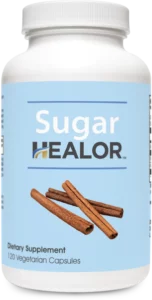
In a three-month time frame, the patient's ESR (erythrocyte sedimentation rate) levels decreased from 80 to 40, indicating a significant improvement in inflammation. Additionally, the C-reactive protein levels decreased from 40 to 20, further supporting the reduction in systemic inflammation.
Furthermore, the patient experienced positive outcomes beyond the improvement in inflammatory markers. She was able to lower her insulin dose, suggesting an enhancement in insulin sensitivity and glycemic control. This is particularly significant for individuals with conditions such as diabetes, where chronic inflammation can exacerbate insulin resistance.
Moreover, the patient reported a notable decrease in fatigue and other systemic symptoms associated with inflammation. Fatigue is a common complaint among individuals with chronic inflammatory conditions, and its reduction indicates an overall improvement in the patient's well-being and quality of life.
These findings highlight the effectiveness of the treatment protocol or intervention employed in managing the patient's inflammation. The decrease in ESR and C-reactive protein levels, along with the improvements in insulin requirement, fatigue, and other systemic symptoms, collectively demonstrate a positive response to the treatment strategy implemented.
This case report highlights the potential benefits of using high-dose alpha lipoic acid as an alternative treatment for inflammation. While further research is needed to fully understand its mechanisms of action and long-term effects, the initial results are promising. By utilizing ALA, we can alleviate the reliance on steroids and reduce the associated side effects, ultimately improving patient outcomes and quality of life.
If you are interested in exploring alternative approaches to chronic inflammation and other medical problems, consult our functional Medicine specialists in Las Vegas to discuss more.

Diabetes is characterized by elevated levels of glucose in the blood stemming from the inability to use or produce insulin effectively. Weight loss can impact blood sugar levels, insulin sensitivity, and overall diabetes management. In this pursuit, berberine emerges as a promising compound. Discover the incredible benefits of berberine for diabetes management. Learn about proper dosage, potential side effects, and how it can help regulate blood sugar levels.
What is berberine, and how can it help those with diabetes? HEALOR walks you through berberine for weight loss and its other health benefits.
There are two forms of diabetes: type 1 (failure to produce insulin) and type 2 (failure to use insulin). Globally, approximately 422 million individuals have diabetes, and the condition directly causes some 1.5 million fatalities annually.
Treating or managing diabetes involves lifestyle changes, monitoring blood sugar levels, and possibly medication or insulin therapy. Generally, excess body weight and obesity are key risk factors for developing type 2 diabetes. Weight loss, therefore, plays a pivotal role in managing and sometimes preventing this condition.
Berberine is a bioactive compound extracted from different plants, including the Berberis shrub family. Historically, people used berberine for its antimicrobial properties and as a treatment for multiple ailments.
Given the expanding research on berberine and its multifaceted benefits, its role in diabetes management has garnered significant attention. The compound can effectively reduce blood sugar levels through multiple mechanisms, which include the following:
Most research studies have administered berberine dosages ranging from 1,000 to 1,500 milligrams daily. The typical berberine supplement contains 500 milligrams per capsule, with an intake recommendation of one capsule thrice daily before meals. Berberine supplements — powder or capsule — are available in health food stores and online retailers.
While berberine is not a miraculous solution for weight loss, it exhibits potential benefits for individuals with a body mass index of over 30. Studies indicate that consuming a berberine supplement over three months leads to a notable decrease in body weight, which we can attribute to the compound’s capacity to regulate insulin and other hormones.
Berberine can interact with various medications and result in potential side effects such as the following:
Despite the promising benefits of berberine in managing diabetes, it is crucial to consult healthcare professionals before including it in any treatment regimen.
Berberine’s potent effects on metabolic syndromes make it a valuable compound. At HEALOR — a leading primary care and medical weight loss services provider in Las Vegas — we recognize the significance of innovative treatments in managing chronic conditions like diabetes. Our team of healthcare professionals integrates evidence-based supplements into comprehensive care plans tailored to meet the unique needs of our patients.
If you are seeking a holistic approach to diabetes management or exploring medical weight loss solutions, HEALOR is here to guide you on your wellness journey. Call our team at (702) 362-2273 or contact us online today.

Maintaining optimal liver health is crucial for your overall well-being as the liver plays a pivotal role in detoxification and metabolism. While some can provide valuable health benefits, some are the Worst Supplements for Liver health. Let’s explore five supplements identified as potentially harmful to liver health.
Aloe vera, a plant resembling a cactus and a member of the Lily family, is often present in skincare products for its topical benefits. Some also ingest aloe vera as part of various purportedly medicinal herb concoctions.
Experts documented the first incident of liver damage linked to oral aloe vera usage in 2005. Usually, the onset of such damage occurs between three to 24 weeks after one begins ingesting aloe vera, typically in high quantities for alleviating issues like constipation, dyspepsia, aging, weight loss, or for general wellness enhancement. The damage pattern mostly resembles hepatocellular injury, often mirroring the symptoms of acute viral hepatitis.
Black cohosh, a sought-after herbal remedy, is from a buttercup family plant in North America (Actaea racemosa, also known as Cimicifuga racemosa). The remedy is widely recognized for its purported estrogen-like properties and is predominantly used to alleviate menopausal symptoms.
Though black cohosh did not display any association with serum enzyme increases during treatment in clinical trials involving over 1,200 patients, the supplement has been linked to more than fifty occurrences of significant liver injury.
Chaparral, a botanical derivative from the woody shrub identified as creosote bush (Larrea tridentata), is known for its antioxidant properties and healing effects for various conditions, ranging from skin rashes to cancer.
The first record of liver damage related to chaparral consumption surfaced in 1990. The injury pattern was predominantly hepatocellular, resembling acute viral hepatitis, with significant increases in serum aminotransferase levels and minimal escalation in alkaline phosphatase.
Comfrey, a member of the Boraginaceae family, is a plant widely utilized in herbal medicine for its purported healing properties. Extracts from comfrey leaves and roots soothe wounds and mitigate pain and inflammation stemming from arthritis, sprains, and bone fractures. However, it’s important to note that comfrey contains pyrrolizidine alkaloids.
Numerous instances of acute liver damage, akin to sinusoidal obstruction syndrome (SOS), have been reported due to oral intake of comfrey. This form of liver injury generally manifests within one to two months from the onset of comfrey consumption, either as an extract tablet or in substantial quantities of comfrey tea. Initial symptoms include discomfort in the right upper quadrant, nausea, and weight gain from fluid retention, followed by the onset of jaundice.
Among the supplements that are bad for liver health, fo-ti is perhaps the most controversial one. Polygonum multiflorum, a herb indigenous to China, holds a long-standing reputation in traditional medicine for its comprehensive treatment abilities. Known alternatively as Shou Wu Pian, He Shou Pian, and Chinese knotweed, this herb alleviates diverse conditions such as back pain, vertigo, premature hair graying, and constipation.
There are numerous documented instances, however, including an extensive case series from China, Korea, and Japan, highlighting acute liver damage resulting from the use of Polygonum multiflorum. Notably, in China, this herb is the leading cause of liver injury related to herbal product usage. The latency period to the onset of symptoms can be brief, ranging from a mere few days to an extended period of up to six months.
Aloe vera, black cohosh, chaparral, comfrey, and fo-ti are only five of the many supplements associated with liver damage. Before adding any supplement to your routine, it’s best to consult with a healthcare professional, especially if you have underlying liver conditions or are taking medications that may interact with these supplements. Your liver’s health is crucial for your overall well-being, so always be mindful of what you put into your body.
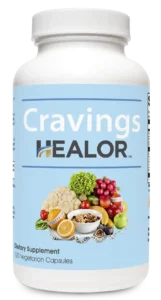
Discover the best 9 natural supplements for weight loss that can help you shed pounds and achieve your fitness goals Thanks to sedentary lifestyles and access to calorie-rich foods, gaining weight has become a concern for many. This issue has led people to buy supplements promising weight control or weight loss. However, it can be difficult to choose the right herbs, vitamins, and minerals that can help you shed the excess pounds. Which ones are safe? Which ones are just a waste of money?
To help you pick the best natural supplements for weight loss, we have shared some of the proven products available today. Keep reading to learn more.
Many supplements exist on the market today, so it’s hard to know which ones are actually worth the money. Since supplements aren’t regulated by the FDA, consumers are also wary about what these products actually contain. Thankfully, there are supplements that are backed by medical and scientific research, not just trends or marketing.
Before you take these supplements, remember that they’re not the sole solution to weight loss. These products simply complement your daily regimen and diet, which are the main ways to lose excess fat. Some can help you burn calories efficiently, some make you feel full quickly, and a few suppress your appetite entirely. However, don’t rely on the products on their own if your mission is to reduce your weight. If you have underlying medical issues, make sure to consult your doctor first before taking any supplements.
If there’s one supplement that’s been proven time and again to aid in weight loss, it’s fiber. This term refers to a group of carbohydrates that the body cannot digest, passing through the digestive tract intact. Fiber has many benefits and mechanisms that help us shed excess pounds. Beta-glucan, a type of fiber, helps us feel fuller and slows down the breakdown of sugars. Other forms of fiber alter gut hormones and improve the health of our gut microbiome.
Many fiber supplements exist in the market, with psyllium husk and methylcellulose as some of the most popular ones. However, you can still get enough fiber by eating fruits, vegetables, and whole grains daily.
The gut microbiome plays an important role in our overall health. Millions of microorganisms living in our stomachs and intestines affect how we process nutrients in food, how we store fat, and when we feel full or hungry. Thanks to these benefits, it’s important to keep our gut microbiome healthy.
Probiotics are supplements that contain good live bacteria, which you can take to boost the number of beneficial microorganisms in the gut. You can also get good bacteria from fermented foods, such as yogurt, kefir, and kimchi.
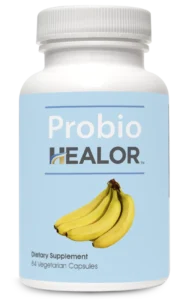
There are certain compounds in green tea that act as stimulants, such as catechins and caffeine. By increasing metabolic rate, these compounds make you burn fat more quickly. Green tea may also help increase the production of hormones like pancreatic lipase, which make it easier for the body to digest fat.
While you can drink green tea, you can also consume it in the form of pills or tablets. If you have caffeine sensitivity, be sure to take green tea in small amounts.
Fish oil, by itself, doesn’t directly help with weight loss. However, the supplement can help reduce fat deposits in various parts of the body, especially the abdomen. Studies have shown that the Omega-3 fatty acids in fish oil increase metabolic rate. When combined with a good diet and exercise, this supplement may just help you get rid of stubborn belly fat.
There are many fish oil supplements on the market. When choosing one, make sure that it contains the bioactive ingredients that heighten fat burning, particularly Omega-3 fatty acids.
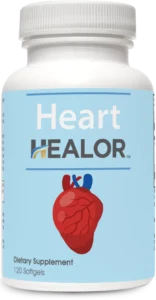
Similar to the effects of green tea, caffeine supplements act as stimulants that help increase metabolic rate. The body becomes more efficient at burning calories, using up fat deposits, and reducing your overall weight. Coffee, one popular source of caffeine, is popular for intermittent fasting practitioners because the beverage reduces hunger pangs and your overall appetite.
Drinking coffee is a great way to get caffeine into the body. However, you can take caffeine pills if it’s the more convenient option.
Over the years, medical science has established a link between Vitamin D deficiency and obesity. The less of the nutrient you have, the more likely you’re overweight. Theories abound for these connections, but many researchers believe that Vitamin D affects how the body creates fat cells. Lifestyle may also be at play, since less active people usually don’t get enough sunshine, resulting in lower Vitamin D levels.
To get the required daily amount of Vitamin D, you can take supplements containing it. Sun exposure of up to 30 minutes a day can also help you reach the right nutrient levels.
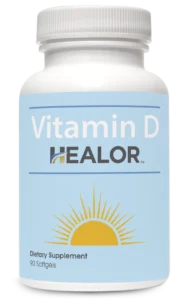
The Vitamin B group has also been shown to have some weight loss benefits. Nutrients like riboflavin, thiamin, and niacin all help optimize metabolism. In addition, these compounds make it easier for the body to process carbs and fats. In short, the Vitamin B group helps the body turn food into energy more efficiently.
Vitamin B complex supplements usually have all the Vitamin B nutrients you need. However, be sure to take only the appropriate dosages since excess Vitamin B may result in weight gain.
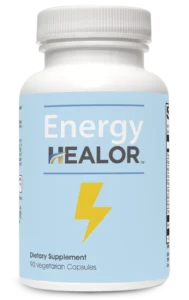
Most of us know Vitamin C as something that boosts our immune system and increases the production of collagen. However, this nutrient can also affect how the body loses fat. People with healthy levels of Vitamin C are more efficient at burning calories than those without. In fact, people with Vitamin C deficiency are more resistant to fat loss even while doing intense exercises.
Plenty of Vitamin C supplements exist on the market. However, you can get natural Vitamin C from eating citrus fruits, fresh vegetables, and some root crops.
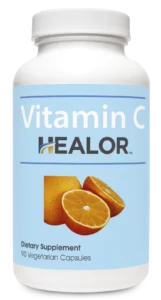
Magnesium is a mineral that we don’t often associate with weight loss. However, this nutrient is key to optimizing how the body processes sugar or glucose in the body. People with low levels of magnesium are more likely to store higher amounts of calories since they can’t be processed properly.
To increase the amount of magnesium in the body, you can take magnesium tablets or multivitamin pills containing the mineral. Whole grains and legumes are also great sources of the nutrient.
Every weight loss journey is different, so you don’t have to take all the supplements mentioned above to see results. Consult with your doctor or dietitian, and learn which of these products will help maximize your efforts. You should also remember that weight loss supplements are not the only solution for fat loss. Exercise and a balanced diet are also essential. For more information about natural supplements for weight loss, visit our website.

In the realm of essential vitamins, B12 reigns supreme, playing a pivotal role in maintaining our overall well-being. Discover the incredible benefits of getting B12 shots, including increased energy levels, improved mood, and enhanced overall health. Learn more here. While dietary sources can provide a portion of our B12 requirements, some individuals may find themselves deficient in this vital nutrient. Enter B12 shots — specifically administered through intravenous (IV) injections. In this blog, we delve into the remarkable benefits of the revolutionary vitamin and why it has made waves in the medical spa industry.
If you find yourself grappling with persistent fatigue and low energy levels, B12 shots could be the solution you’ve been seeking. After all, this vitamin is essential in producing red blood cells, core components in transporting oxygen to every corner of the body.
By boosting B12 levels, you can revitalize your energy, fight lethargy, and regain a spring in your step. Unlike oral supplements that pass through the digestive system, an IV injection can deliver the vitamin directly into your bloodstream, ensuring maximum absorption and efficacy.
B12 shots not only fight physical fatigue but also help boost mental clarity and cognitive function. Adequate levels of this vitamin are essential for promoting proper brain functions and supporting memory and concentration.
With B12 shots, you can alleviate brain fog, sharpen your cognitive abilities, and boost your overall mental acuity. Whether you’re a student looking to optimize your study sessions or a professional aiming for peak performance, B12 shots can be a game-changer.
The benefits of B12 shots extend beyond physical vitality and cognitive sharpness. Research suggests that the vitamin plays a crucial role in synthesizing neurotransmitters like serotonin and dopamine, which help regulate mood.
Individuals with B12 deficiency may experience symptoms like irritability, depression, and anxiety. However, regular IV injection sessions can rebalance your neurochemicals, help you experience a mood uplift, and allow you to regain a sense of emotional well-being.
In a world where well-being is paramount, we highly recommend harnessing the benefits of B12 shots. Whether you want to overcome fatigue, enhance cognitive function, or improve your emotional well-being, B12 shots through IV injections offer an efficient and effective solution.
With their direct delivery into the bloodstream, they ensure optimal absorption, making them ideal for individuals with B12 deficiencies. So, unlock your vitality and embark on a journey towards optimal health with this remarkable vitamin.
Call us to book a session or learn more about the revolutionary treatment.

Are Ear Candles Safe to Use? Ear wax, also known as cerumen, is a waxy substance that is produced by glands in the ear canal. It is a mixture of secretions from these glands, along with dead skin cells and other debris. Ear wax plays an important role in protecting the ear canal by trapping dust, dirt, and other particles that could damage the delicate structures of the ear.
is typically light brown in color and has a sticky texture. It is naturally produced by the body and is usually pushed out of the ear canal by jaw movement, such as talking or chewing. In some cases, however, ear wax can build up and cause a blockage, which can lead to symptoms such as hearing loss, ear pain, or ringing in the ears.
While it is important to keep the ears clean, it is generally not recommended to try to remove ear wax yourself, as doing so can push the wax deeper into the ear or cause injury to the ear canal. Instead, it is best to seek professional care from a doctor or an audiologist if you have excessive ear wax buildup or other ear-related concerns.
Using ear candles to clean ears is not a good idea. Ear candles are hollow tubes made of fabric or wax that are placed in the ear canal and lit on the other end. The idea is that the heat from the candle will create a vacuum effect, drawing earwax and other impurities out of the ear.
However, there is no scientific evidence to support the effectiveness of ear candles for ear cleaning, and they can actually be dangerous. The heat from the burning candle can cause burns or even melt the wax, which can then drip into the ear and cause blockages. There have also been cases of ear candles causing punctured eardrums or other injuries.
Instead of using ear candles, it is recommended to clean ears with a gentle ear cleaning solution or simply warm water and a washcloth. If you have excessive earwax buildup or other ear problems, it is best to see a doctor or an audiologist for professional treatment.
Ear candles are hollow tubes made of fabric or wax that are used for alternative ear cleaning. They are also known as ear cones or thermal-auricular therapy. The idea behind ear candles is that when one end of the candle is lit, it creates a vacuum that draws out earwax and other impurities from the ear canal. The process is also said to help with various ear-related problems, such as ear infections, tinnitus, and vertigo.
However, there is no scientific evidence to support the effectiveness of ear candles for ear cleaning or any other ear-related issues. In fact, using ear candles can be dangerous and cause injury to the ear. Therefore, it is not recommended to use ear candles for ear cleaning or any other ear-related issues. Instead, it is best to consult with a doctor or an audiologist for proper ear care and treatment.

What Are Essential Vitamins. When it comes to vitamins, different ones play different roles in our bodies. Vitamins are organic compounds that you need in small amounts. Most vitamins need to come from food as our bodies either do not produce them or produce very little. Every person requires a different amount of each to remain healthy. At HEALOR™, Dr. Raj Singh can evaluate your vitamin and mineral levels from blood work taken at your annual exam. He works diligently to ensure his patients feel their best in Las Vegas, NV. This blood draw will detect current vitamin levels.
From these results, he can make professional recommendations on which vitamins and how much you should take to feel your best. He can help provide information on what vitamins give you energy, as when we age, our energy levels decline. Ultimately, vitamins and minerals help boost the immune system, support growth and development, and help your cells and organs do their jobs properly.
There are currently 13 different essential vitamins, which are important to our overall health, including:
At HEALOR™, Dr. Singh agrees that morning is best to take B vitamins and multivitamins. Water-soluble vitamins are best absorbed on an empty stomach. This means 30 minutes before eating. These vitamins dissolve in water, so your body can use them properly. Vitamin C, all B vitamins mentioned, and folic acid are considered water-soluble. During your visit to our Las Vegas, NV office, we can give you a schedule of when to take your vitamins daily.
A vitamin deficiency occurs when you’re lacking a vitamin. When it’s caused by not enough intake, it’s called a primary deficiency, while an underlying disorder that causes it is known as a secondary deficiency.
Some common symptoms of vitamin deficiency anemia include:
Most people don’t think that they need to take vitamins. However, at HEALOR™, Dr. Raj Singh is committed to ensuring all of his patients throughout Las Vegas, NV are taking essential vitamins for optimal health. He can evaluate your current levels and make suggestions on which ones to take and when. Many of our patients admit that they feel dramatically different after beginning to take them. To schedule an appointment to learn more about vitamins, call our office today.

Vitamin B12 keeps those red blood cells coursing through the body! B12 helps them keep their round shape so they can freely move from the bone marrow to the bloodstream at a steady and appropriate rate, but these are only a few of the health benefits of vitamin B12.
If the blood cells gain some weight, increase in size, sometimes causing them to look more oval, then moving from bone marrow to bloodstream becomes more difficult and slows down, causing a deficiency. This can lead to a physical condition called Megaloblastic Anemia.
Anemia is a scary world. It means your body doesn’t have enough of those healthy red blood cells carrying oxygen to your vital organs, like the brain! So if memory and fatigue become an issue, this could be the cause. Being low on B12 can lead to conditions like Osteoporosis as well. We usually hear more about Osteoporosis in women but it does happen to men as well. So watch for broken bones that happen too easily as well. Take note that B12 won’t improve your mood if you aren’t already on the low end of the levels required. But if you are and are experiencing lulls in your mood, then it’s worth a try.
Poor memory performance is another factor of low B12. Supplementing B12 coupled with Omega 3 Fatty Acids may help prevent memory loss or dementia and even if the process has already started it can serve to slow the decline which is very helpful to these patients in the long run. Adding any amount of time to a life where you are cognizant and functioning is a plus.
Hair, skin and nail support is another plus of Vitamin B12. Low B12 levels can result in hyperpigmentation or vitiligo (those white intermittent patches that look like bleached areas of skin), discoloration of nails and changes to the hair. However, if you are eating properly this should not be an issue. It’s the extreme low that can contribute to these ailments.
Vitamin B12 Deficiency is more common in older people, i.e. above the age of 60. But you can have your levels checked at any age to ensure you are supplementing and eating properly. In addition, there are various health conditions that may make you more susceptible. They are:
B12 is important for many reasons and most people are able to get enough B12 through their diet as long as it is varied and sensible. However, running low isn’t the end of the world. You can take supplements or, for a quick pick-me-up, HEALOR offers B12 injections!